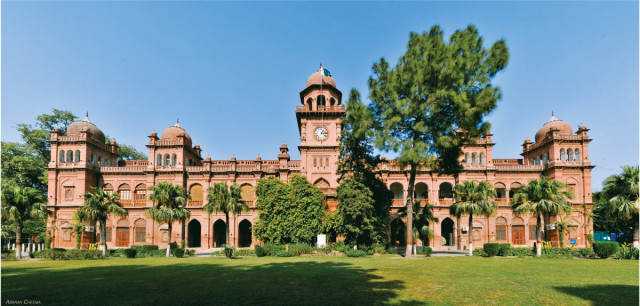PU offers expertise on transgenic cotton varieties
Participants express interest in acquiring Pakistani developed cotton types

PHOTO: FACEBOOK
The training programme was conducted on the development of sustainable transgenic technology and its commercialisation. The training also covered post-release monitoring to identify the relevant needs of transgenic crop technology and assess capacities at hand of the member countries of Organisation of Islamic Cooperation. As many as 18 delegates from 13 cotton-producing Islamic countries took part in the training.
Dr Tayyab Husnain gave an introduction of molecular biology, its application and achievements followed by a technical lecture of genetic transformation of cotton by Dr Abdul Qayyum Rao.
For two and a half decades, Pakistan’s cotton output remains virtually stagnant
The proceeding ended with an informative lecture of Dr Tayyab Husnain on the identification of economically important agronomic traits and characterisation. He said CEMB was ready to support Islamic countries under the umbrella of bilateral technology transfer agreement. The participants expressed their interest in acquiring Pakistani developed transgenic cotton varieties. They also praised SESRIC for arranging such informative training and requested to do more in near future.
Meanwhile, Punjab University has awarded five PhD degrees to the scholars in which Amna Ali earned her degree in the subject of agricultural sciences (plant pathology). Muhammad Nadeem Hafeez got his degree in the subject of molecular biology after the approval of his thesis entitled “Cloning of Mutated Universal Stress Protein Gene-2 (USP-2) in cotton and its Functional Characterisation”.
Muhammad Zafar Saleem also secured his PhD degree in molecular biology after approval of his thesis.
Kanwal Nazir was awarded her degree in the subject of mathematics and Muhammad Kamran Malik in the subject of computer science after approval of his thesis entitled “Named Entity Recognition and Classification System for Urdu Language”.
Published in The Express Tribune, May 18th, 2018.



















COMMENTS
Comments are moderated and generally will be posted if they are on-topic and not abusive.
For more information, please see our Comments FAQ